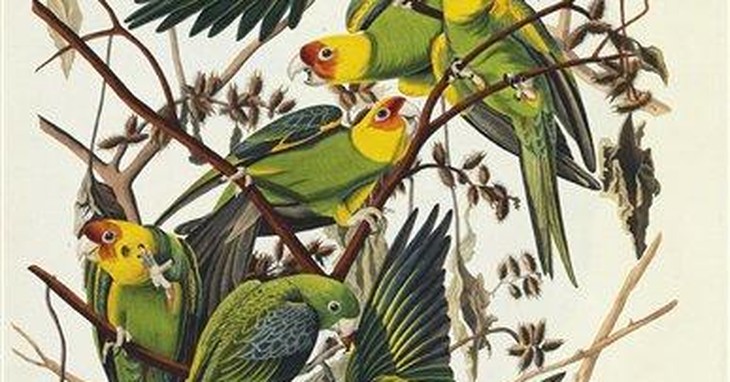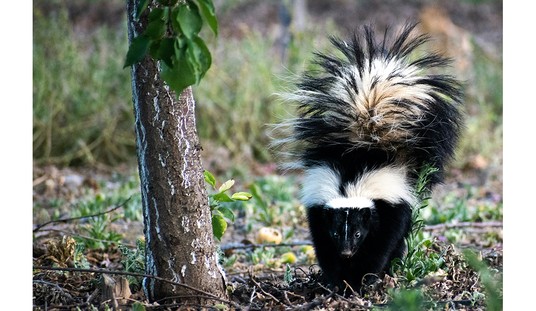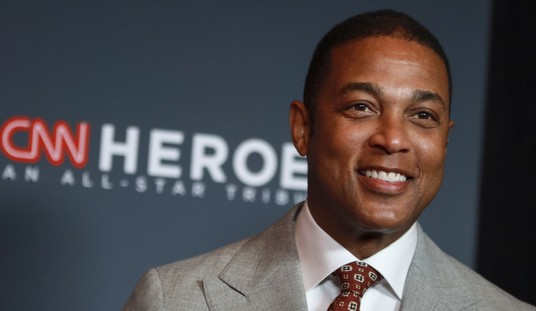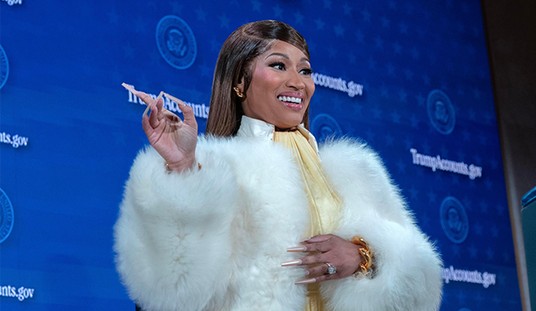With all other issues handled, feathered offenses are now a concern.
Currently, leftists and activists are exposing their slipping grip on a narrative by routinely trotting out the deflecting question, “Can conservatives even define ‘woke’ properly?!” It is a neutered response and a sign that the fight against this movement is effective. This demanded defining was recently used in a similar fashion regarding Critical Race Theory, when the pushback to that curriculum being instituted in schools showed success.
The only reason this lame attempt might have any traction is that leftists keep adding to the woke culture movement (their term, by the way), making a succinct definition less manageable all while the properties remain obvious. Like porn, woke ideology could mean many things to many people, but most know it when they see it. A prime case in point comes from the Washington Post, where a deflated outrage has been reported on recently.
Springing out of the BLM movement was one nefarious practice which was to delve into the past of any historic figure or institution and look for racist elements, using those tainted touchstones as a reason for social cancellation. One specific example recently concerned the esteemed avian organization, The National Audubon Society. This famed bird conservation group has been in existence for 118 years, but now it is coming under attack for its namesake.
John James Audubon was a naturalist who painted birds to create a record and aid in the preservation of threatened creatures. Audubon discovered dozens of new species and his collected work in “The Birds of America” is still regarded as an important source to this day. HOWEVER — Audubon owned slaves, and as such, this means he needs to be erased from the historical record. There has been a call to have the Audubon name stricken from the organization.
If we lived in less hysterical times, these reproaching lectures would be dismissed, if not outwardly laughed at, but we do not possess such sanity any longer. The National Audubon Society has been grappling with the possibility of striking the namesake naturalist from its group. One bit of good news though is that after a recent vote by its leadership, it was decided that the name would remain.

This seems to have bothered Washington Post writer Dino Grandoni, as he details these events and delivers some regretful prose in the process. Despite the organization spending nearly a year struggling with the issue both internally as well as speaking with those outside the outfit, Grandoni describes the recent decision as arrived at via a “closed-door vote,” implying some dark intent.
The move comes even as about half a dozen of the organization’s regional chapters have pledged to scrub his name from their titles, part of a broader reckoning over the U.S. environmental movement’s history of entrenched racism.
How’s that again? The entire environmental movement has entrenched racism? Well, we come to learn that the answer is — yes. As we will see in just a bit, there are all kinds of problematics of plumage; call it oppressive ornithology, if you will.
The Audubon Society board consists of 26 members who voted on the retention of the name, but this is not without internal strife. The National Audubon Society has 11 different regional societies under its umbrella, and over the years, half a dozen of these have decided to strike his name from their heading. Also, following the vote, three sitting members of the board quit their position. In the face of this dose of reasoned common sense, Grandoni sounds less than pleased.
The announcement underscores the challenge of rebuking a racist past while retaining a history that has made “Audubon” a household name associated with protecting birds. The internal debate at Audubon mirrors a broader reassessment of the American environmental movement over race.
What makes this infecting wokeness so aggravating is that it so often defies the claimed high-mindedness of those pushing this agenda. The voices claiming to adhere to science choose to ignore chromosomes in order to redefine what is a woman. Research and data are pushed aside in order to shame others into mandated pandemic totalitarianism. Even the study of birds can become affected.
Here you have an organization that is said to be steeped in field study and biology and those components are placed in a secondary position to emotional fretting. What impact does slave ownership in the early 1800s have on over a century of work of successful conservation? Audubon was tabbed for the title of this society half a century after his death, and the name is now synonymous with the conservation of avian species. But today, all of that is shunted in order to get anxious over unrelated particulars from 170 years ago, which predated the organization.
But this is hardly an isolated instance in this particular field. Get ready for – racist birds! There are, in fact, many species that carry poisonous monikers, a dark fact that can have a severe impact on…well, nothing. It turns out Wallace’s Owlet is a problematic bird because its name comes from a naturalist who used the n-word in his writings. Also, there is McCown’s Longspur, named after (gasp) a Confederate general. And — so what? When this is your focus — and not the very birds you were pledged to benefit — maybe you are in the wrong field.
A spokesperson from one of the Audubon chapters that dropped his name displays more of this imbalanced thinking. “Carrying John James Audubon’s name does not serve us well ethically,” said Judy Pollock, president of the Chicago chapter, after the decision. But then, as far as serving themselves goes, she admits to a newly realized reality that was not entirely thought out properly.
Although her chapter rushed to strip away any connection to the longtime attributed naturalist, Pollack’s group has not managed to rebrand itself appropriately. As they stand, the Chicago chapter does not have a new title. “It’s hard to come up with a name that says all the things that the name ‘Audubon’ did,” she said.
Just brilliant. You rush to react in order to appease a faction of this country that ultimately will not support you, and in the process, you have become undistinguishable in your field. Further, it will be hard for donors to write a check to an organization that has no name. Pay to the Order of (as yet to be determined) will not be filling coffers with nearly the same levels of revenue.















Join the conversation as a VIP Member